by Meg Griswold and Karli Lomax
Meg Griswold is a MS humanities teacher at Graded, The American School of São Paulo, Brazil. As part of the school’s professional learning initiative around deeper learning, Meg was introduced to concept-based teaching and learning.
“While my teaching has always been about the big ideas and transferable concepts, I realized that a lot of the conceptual framework lived in my head. And although I felt like my teaching was leading students to the big ideas, I wasn’t explicit about that. I wasn’t asking students to see how the pieces connected in an explicit way.”
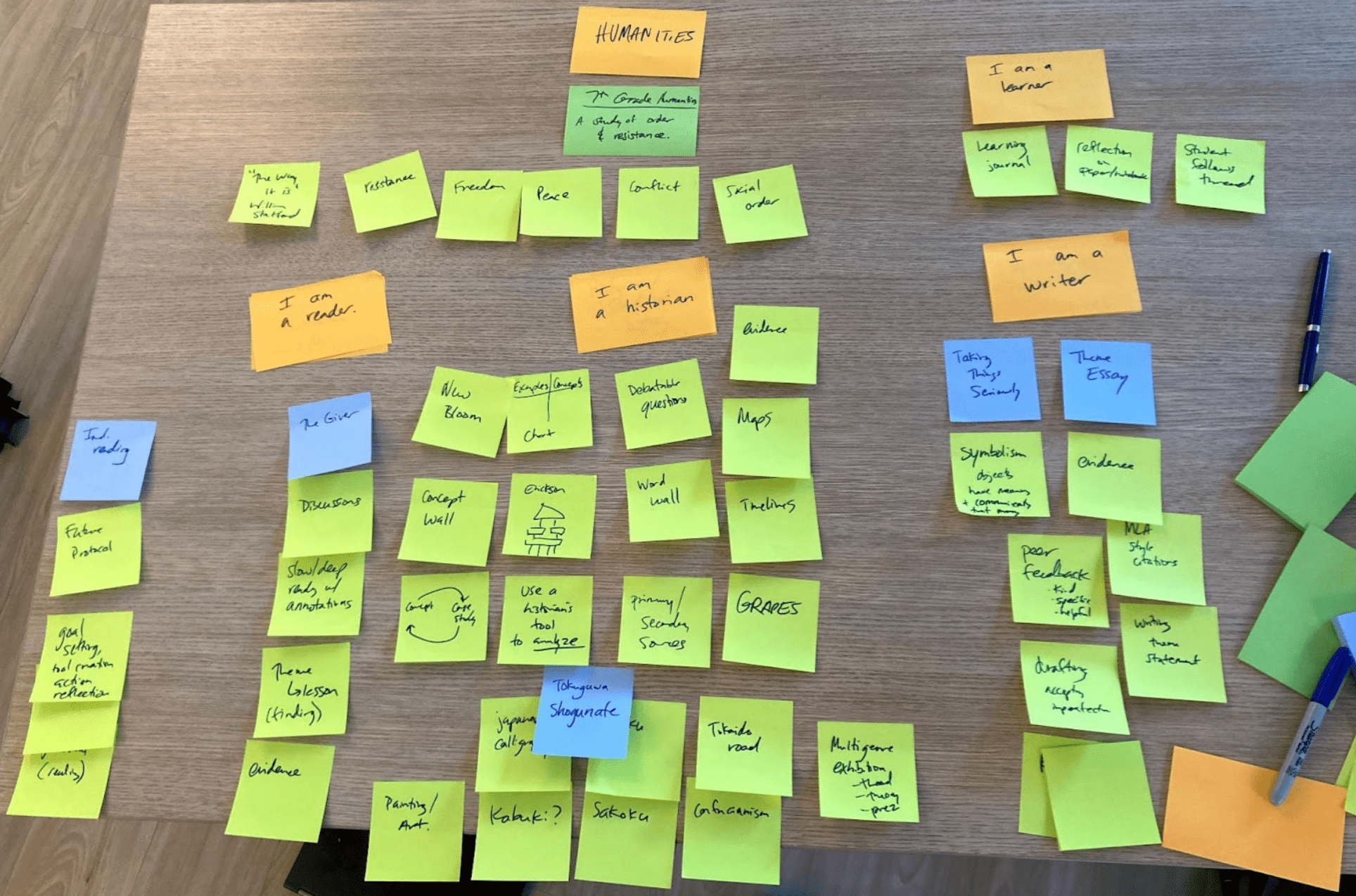
How did you start implementing concept-based teaching?
“When we began to learn about teaching for conceptual understanding in the course, I felt like things clicked better than they had since my grad school and UBD days early in my career. I really fell in love with Lynn Erickson’s Structure of Knowledge and used it to organize my thoughts about our first semester of 7th grade humanities. It was very helpful for me to articulate the facts, concepts and enduring understandings that I wanted my students to learn.”
“The Frayer model was also a tool I really liked, and I immediately went back to my classroom and turned one of my bulletin boards into a giant Frayer model. We’ve used that board to explore multiple concepts.”
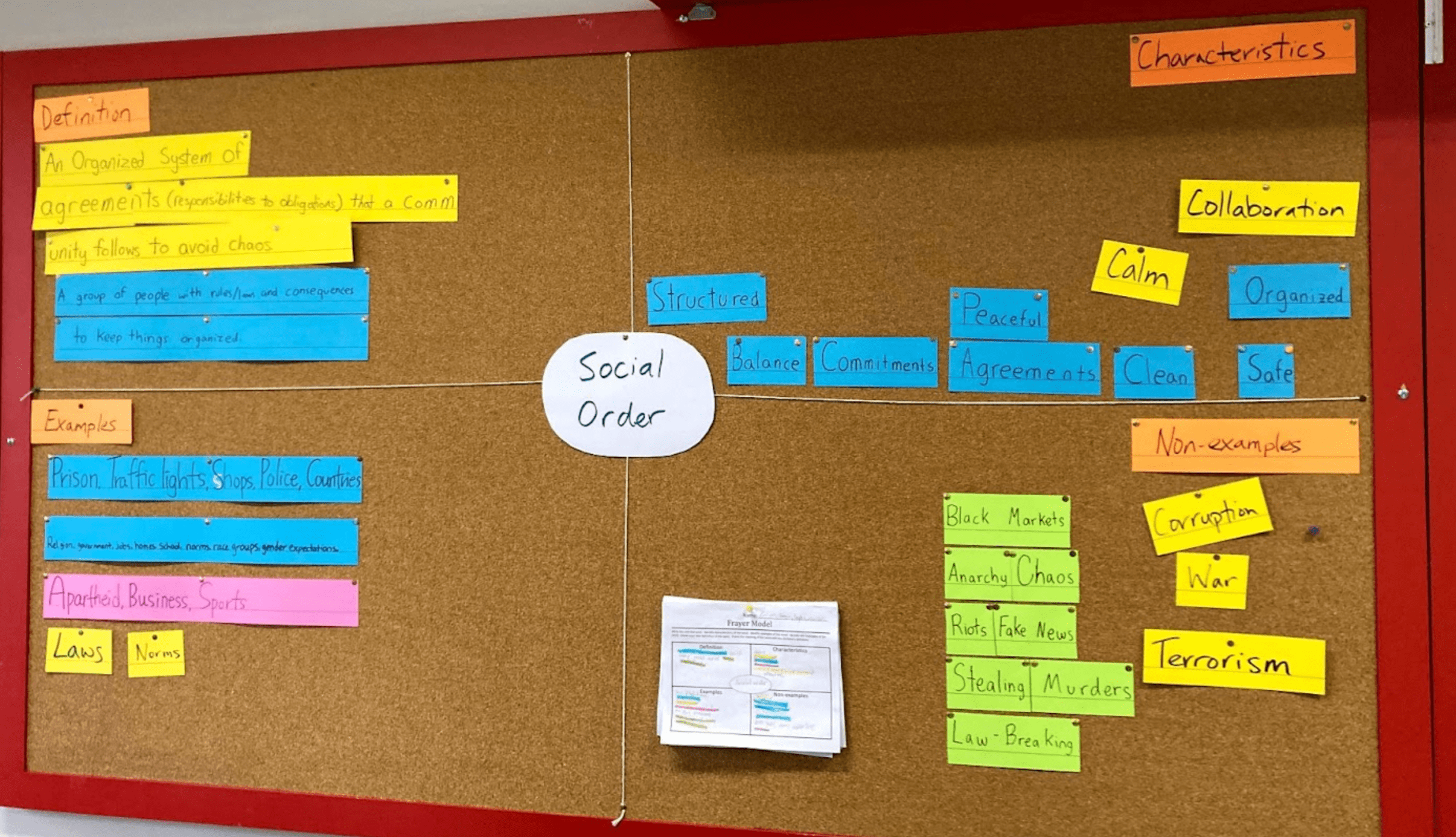
How has concept-based teaching impacted your students?
“Using the Frayer model board as a tool, students worked in collaborative groups to develop and share their understandings of our key unit concepts (order, dystopia, theme) within the topic of Tokugawa Shogunate. I was delighted to see students consulting the Frayer model during our lessons, and immediately expanding or correcting their understanding.”
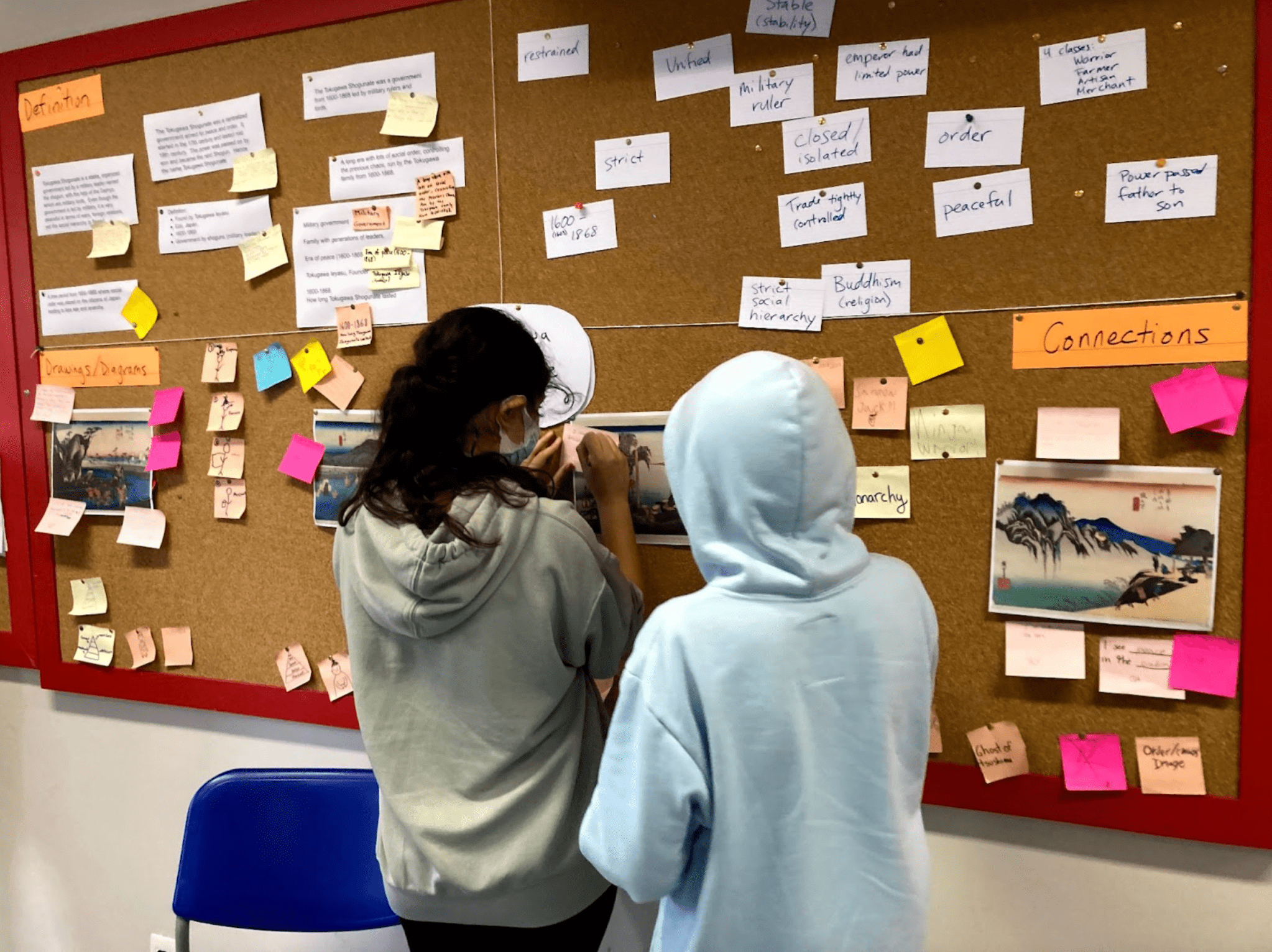
“By the semester, students had a clearer and more personalized understanding of the unit-related knowledge and concepts. In the past, I’d sometimes realize in the final weeks of the unit that some students still didn’t understand a concept we had studied, however, using the Frayer model bulletin board was a great formative tool, helping me to engage students metacognitively so they could reflect on their understanding
along the way.”
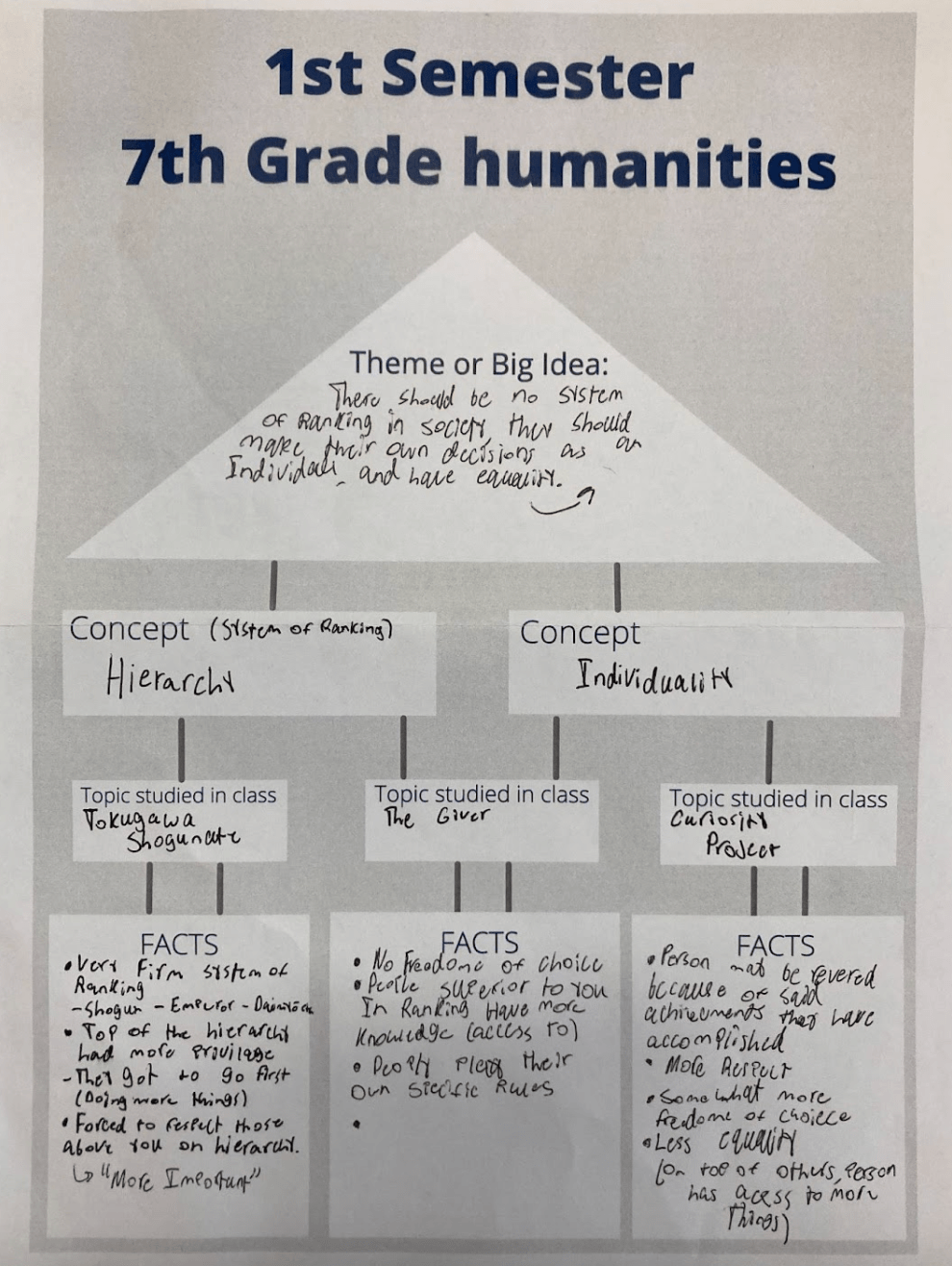
Now what? What might the next steps of your journey be?
“I think there’s still work to be done around refining essential questions that will guide my students to generalize conceptual understandings. While my team and I have developed some solid essential questions for this course, I want to explore the role of debatable questions and how they might further deepen students’ learning and engagement. I want to learn how to write the best essential questions. I’m also hoping to participate in a book study with some colleagues and perhaps sign up for an in-person PD on conceptual learning. This is just the beginning for me!”
Would you like to learn more about Concept-Based Curriculum and Instruction? Learn more about the Erickson and Lanning CBCI Institute HERE. Applications close July 29, 2022.
About the authors:
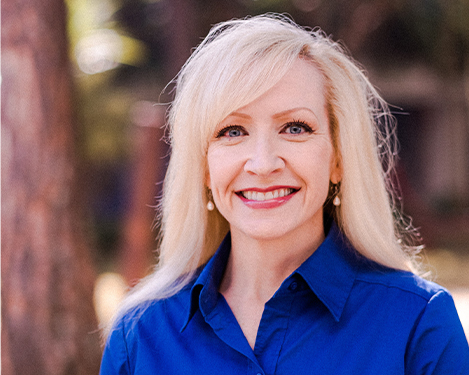
Karli Lomax is currently a Deeper Learning Coach at Graded – The American School of São Paulo. With more than 20 years of experience, Karli has served as a teacher, teacher mentor and coach in the U.S., Bangladesh, China and Brazil. Through coaching, Karli aspires to empower individuals to reach their potential and build collaborative learning environments. As a certified Concept-Based Curriculum and Instruction Trainer and Learning that Transfers Extended Team member, she is passionate about equity, inquiry and concept-based pedagogy.
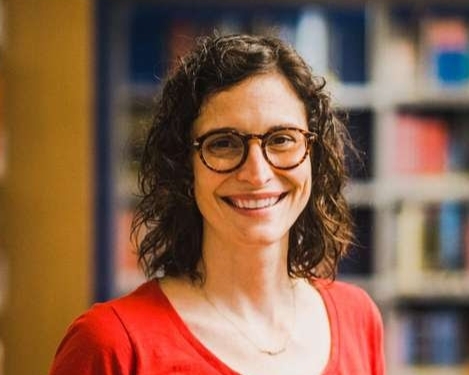
Meg is currently a middle school humanities and journalism teacher at Graded, the American School of Sao Paulo. Before coming to Graded, Meg was a high school English teacher at Harpeth Hall, an all-girls school in Nashville, Tennessee, where she taught for seven years. Before coming to Nashville, Meg taught middle school English in New York City at The Urban Assembly Institute of Math and Science for Young Women and New Heights Academy Charter School. Meg holds a BA from Case Western Reserve University in Cleveland, Ohio, and an MA in Educational Theater and English Education from New York University. Meg grew up in the international school world, having attended ASF in Mexico City for 5th and 6th grade, and Escuela Campo Alegre in Caracas, Venezuela, from 7th through 12th grade. In addition, Meg spent her junior year of college in London. Meg is married to high school math teacher David Griswold, and they have three children, Calvin, 10, Matilda, 7, and Everett, 5. When not teaching or spending time with her family, Meg likes to read, write, and play the mandolin.